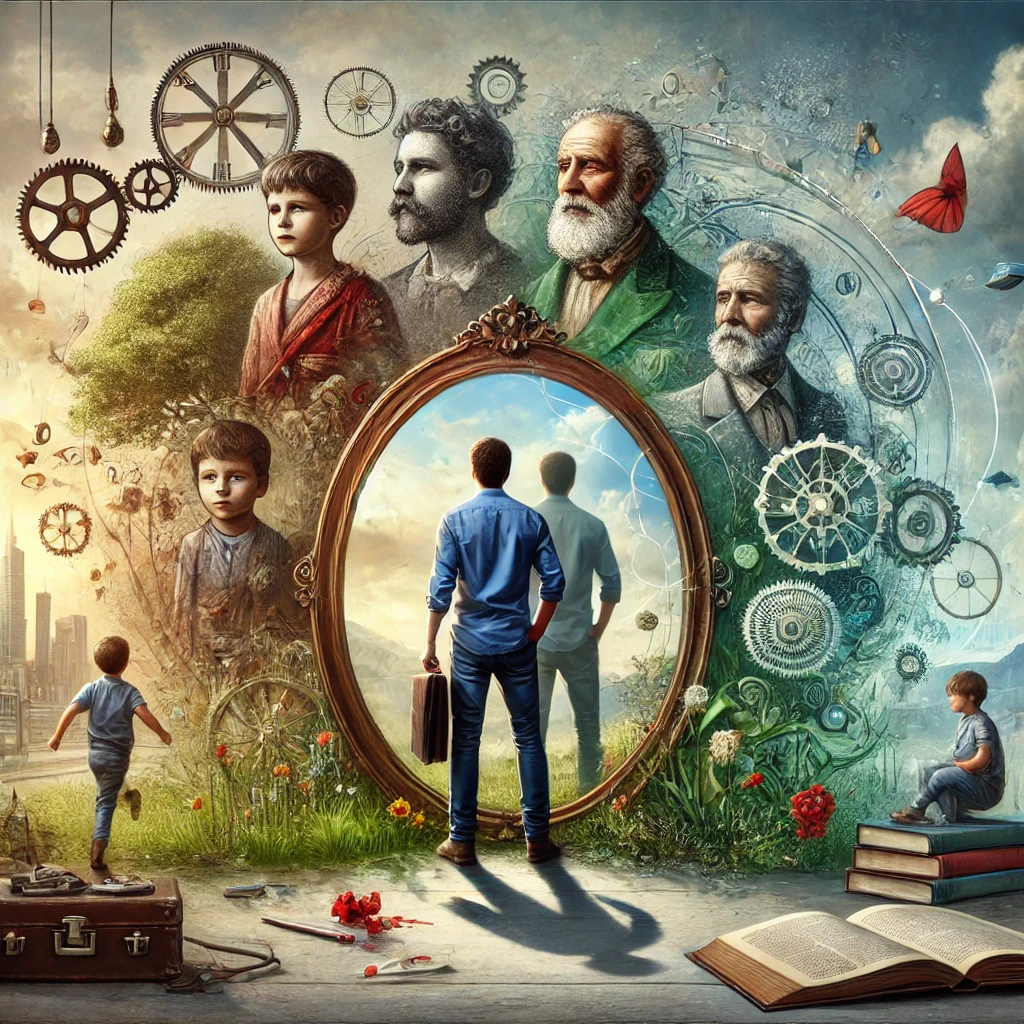Identity and time
3 minutes to read
Who are you?
Whenever I’m asked a version of this question, I give a broad and somewhat superficial summary: I’m a Software Engineer. I’m Moldovan-Romanian. I’ve lived in Canada for 7 years, England before that, and Moldova before before that. I have an older sister that lives in Zurich and a 7 year old brother we call kinder surprise.
These facts form aspects of my identity, but identity is a lot more than that. It’s hopes and dreams, likes and dislikes, fears, beliefs, habits, traits.
An incomplete but more accurate and vulnerable summary would be: I love pushing myself to the edges of my physical abilities. The discomfort feels good. I run. I cycle. I’m always working on a side-project because otherwise I feel like something’s missing. I love deep conversations with good friends. My biggest fear is dying with regrets. I have a severe case of FOMO so often spread myself too thin. I’m an overthinker. I try to be kind but have also been selfish. I try to be empathetic, but I’ve also been self-centered.
Were you always this person?
This is who I am at this moment, this day and this month. It’s not who I’ll be in five years, and it wasn’t who I was five years ago.
For a long time I thought identity was set in stone. This stunted my growth as I navigated through life reactively, doing, thinking and being more of the same.
I held that belief for two reasons:
- I strongly believed that we are only a product of our genetics and childhoods;
- and that our brains stop developing at 25
Don’t get me wrong, there are large grains of truth in the above beliefs, but we also discount the nuance, and the nuance is crucial.
Our genes and early years do play a major role in who we are. Let’s say they’re reponsible charitably for 80% of my behaviour, mindsets, and traits at the moment. As I age and gather more experiences, I am bound to learn from them. After all, humanity would not have thrived if it wasn’t for our remarkable skill to adapt. The 80% gradually becomes 70%, then 65% and keeps dropping in favour of newer, fresher ideas.
As to the second point about our brain not developing past 25: it makes sense that the brain reaches maturity at some point, and I guess mid-twenties is as good a time biologically as any. I initially thought that meant I wouldn’t change at all after my mid twenties. A far more accurate take is that as our brain matures and becomes less plastic, our pace of change indeed slows down, but it never fully stops.
Consider life-time smokers that successfully quit in their 60s. They are a testament to the fact that we can make major changes at any point in our lives. You might say these changes are usually due to extreme events: a health scare, loss of a loved one or a financial crisis. Drastic events often push the needle and make change easier but they are not necessary. There are also many smokers that have decided to quit simply because they want to improve their quality of life. I would go even farther and say the fact that there’s at least one such case proves my point that we are able to change at any point in our lives.
So what is your point?
We change continuously throughout life. It is harder to make meaningful, conscious changes as we age because our habits can become deeply ingrained over years of repetition, and rewiring ourselves to new patterns takes time. But some things are important enough that they make the effort worth it.
Sure, it will take a while to notice a difference. I think it’s similar to gaining weight. I barely notice anything because the image in the mirror from today is almost the same as yesterday. But when I visit my grandma for Christmas and she grabs my cheek and says I’ve been eating well, then I know I’ve changed.